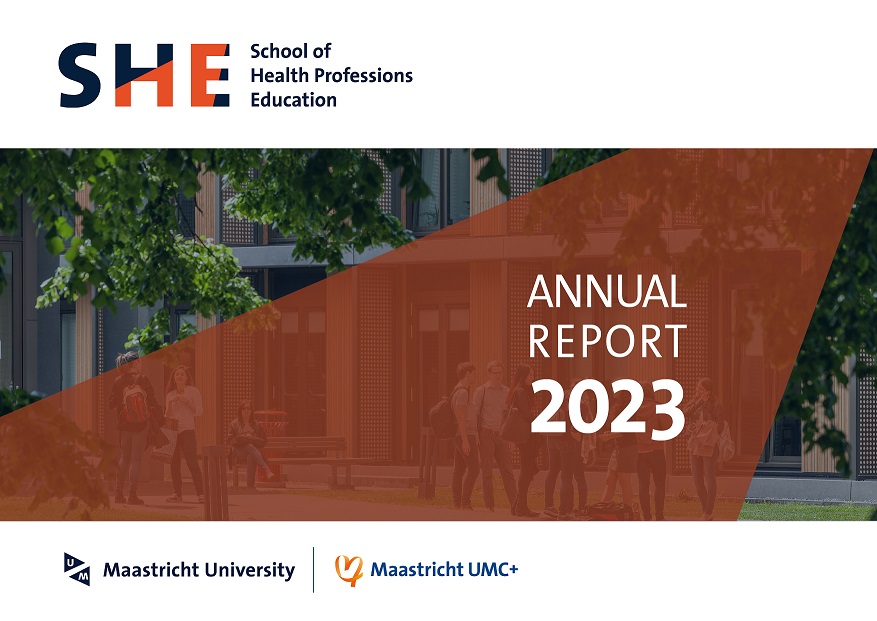Ad hoc crisis responses: a curse for international organisations?
It's a widely accepted notion: international organisations, such as the European Union and the World Health Organization (WHO), are created to solve collective issues. But when urgent crisis situations arise, such as the coronavirus outbreak or an imminent security issue, member states often choose not to work together on these issues inside the framework of these organisations. Instead, groups of countries tend to unite outside the framework of international organisations to provide ad hoc responses to these crises.
Together with an international research team, Yf Reykers, Assistant Professor in International Relations at the Faculty of Arts and Social Sciences, will study the impact that these ad hoc crisis responses have on international organisations. For this four-year project, led by John Karlsrud (NUPI, Norway), the team has received a 1.2 million euro grant from the Norwegian Research Council.
Ad hoc crisis responses
“Ad hoc crisis responses are (re)actions that immediately follow a new threat. Examples are international reactions to the corona pandemic or terrorist threats in the Sahel region. Instead of jointly responding to an international issue through the framework of international organisations, states (and sometimes non-states) join forces in an ad hoc coalition.”
“Ad hoc coalitions can be defined as loose groupings of like-minded actors. They are formed when a crisis erupts and there are no established rules or bureaucratic apparatus in place. The size of these ad hoc coalitions differs. They are not necessarily small and can even be so large that they include all member states of an international organisation. The duration of their existence differs per coalition. What is characteristic of ad hoc coalitions is that they usually fall apart as soon as the problem for which they were created has been solved,” Reykers explains.
Ad hoc crisis responses vs international organisations
Looking at the characteristics of ad hoc crisis responses and the coalitions that are formed, the question arises why action is taken outside the framework of international organisations in periods of crisis. Why should states form separate coalitions when they are already united in an international organisation that aims to solve collective problems? According to Reykers, the answer is twofold.
“International organisations have usually been around for years and have an established bureaucracy in place. When formal responses to crises have to be formed, or a decision to take action has to be made, it has to go through the bureaucratic apparatus. These decisions often require consensus or even unanimity in voting, which often takes weeks or months of negotiations to reach. Within ad hoc crisis responses, there is no bureaucracy in place and the coalitions consist of like-minded actors who have the same goal in mind. As a result, action can often be taken much faster.”
“In addition, countries are hesitant to give up their autonomy, which often has to be done within an international organisation. Take a look at for example the EU’s attempt to cooperate more closely in the field of defense. Many member states oppose sending troops to the Sahel to counter terrorism under an EU flag, because their troops would fall under EU command, instead of national command. At the same time, you see that like-minded actors do take such actions outside the framework of the EU. The reason for this is that within an ad hoc coalition, you retain more control over your troops, because they are under national command, in contrast to military actions led by an international organisation,” Reykers says.

Long term impact
“In our study, we are especially interested in finding out what impact these ad hoc crisis responses have on international organisations. The current literature mostly looks at the short term effects of ad hoc crisis responses: they are faster and less bureaucratic. They also dissolve faster, but can easily be resurrected in a new compound, and with a new aim, when a new threat arises.”
“But what about the long term impact? The euro that is spent on an ad hoc coalition cannot be spent on an international organisation. What is the use of international organisations when it becomes clear that ad hoc coalitions can solve the same problems faster and more efficiently? What does the existence of these coalitions mean for the legitimacy of international organisations? And does this teach us something about the liberal international order? These are the questions we are trying to answer in our research,” Reykers explains.
Reykers wonders whether in the long term, ad hoc crisis responses can undermine international organisations. “In 2017, John Karlsrud, the researcher who came up with the idea of the current project, and I co-edited a book about military rapid response mechanisms. Within the EU and NATO, many resources have been invested in these mechanisms that need to ensure that organisations can respond quickly to crises concerning peace and security. Despite the investments to make these mechanisms a success, none have been effective to date. Whenever a fast response and/or action was needed, member states almost always established ad hoc crisis coalitions. These coalitions made clever use of the knowledge and training gained within international organisations about the rapid response mechanisms. In this manner, ad hoc crisis responses might undermine the legitimacy of international organisations.”
Institutionalisation
“Another aspect of ad hoc crisis responses is that they possibly disprove some long-standing assumptions in the field international relations,” Reykers says. “The theory of liberal-institutionalism, for instance, starts from the notion that cooperation leads to more cooperation, which ultimately leads to the institutionalisation of this cooperation in an organisation. With ad hoc crisis responses, cooperation may not necessarily lead to more cooperation or institutionalisation. Ad hoc coalitions might discourage cooperation within international organisations and perhaps even make some international organisations obsolete.”

Ad hoc crisis responses in practice
The project team that Reykers is part of will study the impact of ad hoc crisis responses on international organisations within two domains: security and health. In this sense, it is noteworthy that the group has received a research grant from the Norwegian Research Council to carry out the study.
“Norway has traditionally been one of the countries that is very committed to multilateral cooperation and is heavily involved in international organisations, both strategically and financially. At the same time, however, Norway takes part in several ad hoc crisis coalitions. In 2020, Norway for example donated 1 billion dollars to the Vaccine Alliance (Gavi) to coordinate and distribute COVID-19 vaccines. A mere 5 million dollars was donated to the WHO for the same cause. When all WHO member states follow a similar policy, what would that mean for the existence of the WHO? We hope to soon have more insights into this.”
By: Eva Durlinger
Photo homepage: SHAPE NATO, Andrew Davis | Flickr | CC BY-NC 2.0

Yf Reykers, Assistant Professor in International Relations at the Faculty of Arts and Social Sciences, has received a 1.2 million euro grant from the Norwegian Research Council to study the impact of ad hoc crisis responses on international organisations.
Also read
-
DATASET researchers from Maastricht University (BISCI) and Fontys applied the Digital Readiness Scan developed by Logistiek Digitaal to several regional logistics service providers, scientifically validated the underlying methodology, and analyzed the strengths and weaknesses of this tool.
-
Download our Annual Report from 2023.
-
On 12 June 2024, Dr Domenico Carolei, Lecturer in Public International Law and Public Law at the University of Stirling, gave a talk entitled 'Charting NGO Accountability: Identifying alternative accountability routes'.


